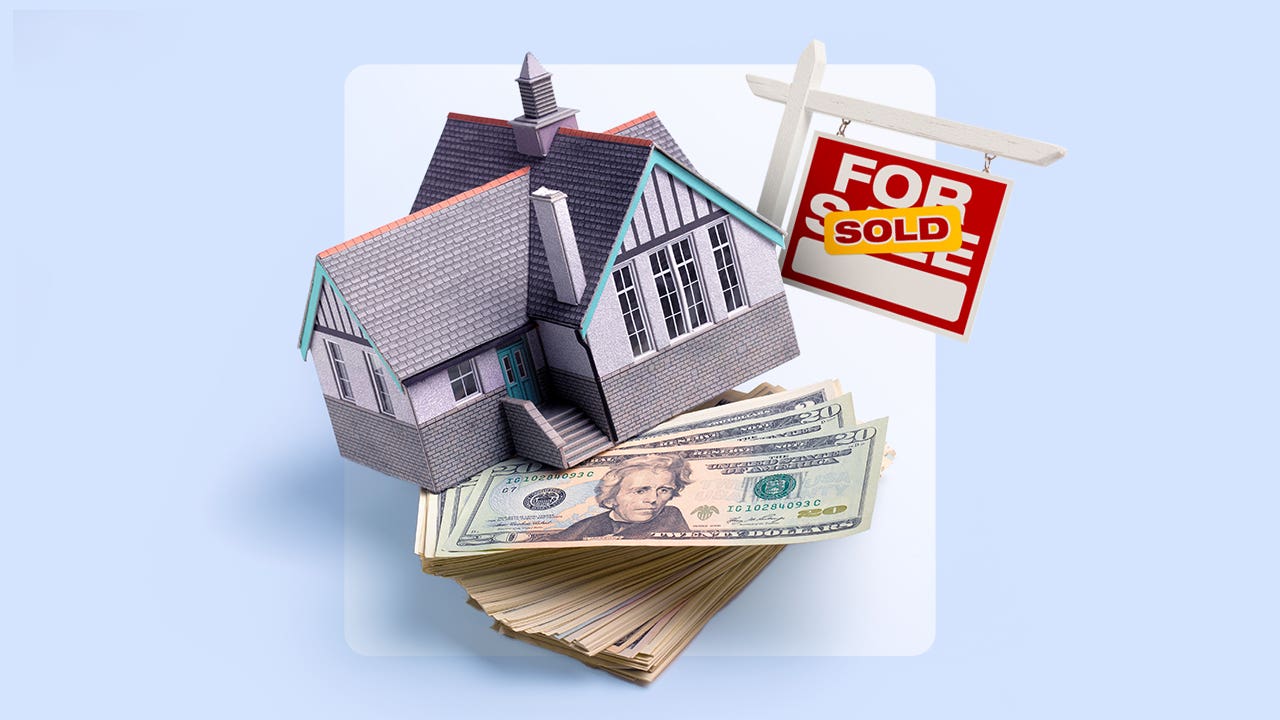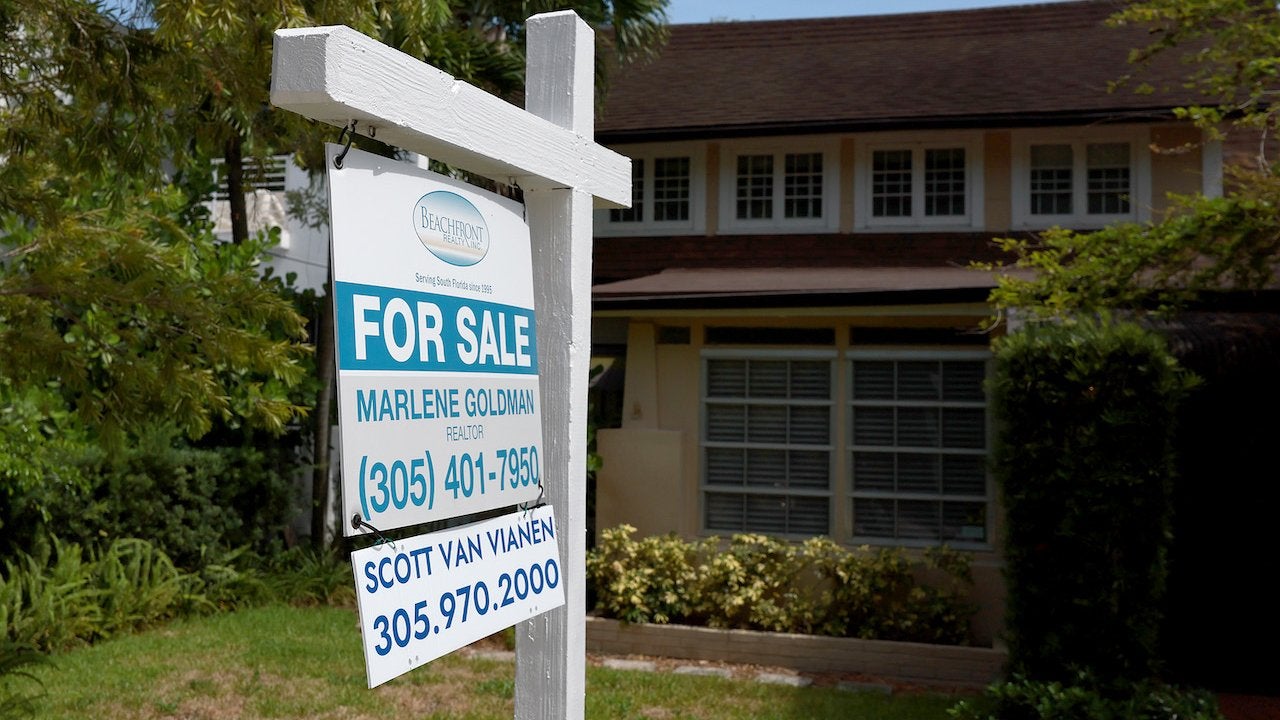Should I sell my house for cash? Pros and cons of cash home sales




Key takeaways
- Selling your house for cash means the buyer purchases the home outright without requiring a mortgage.
- Cash deals avoid the need to go through a lender’s underwriting process, which can make the closing process much quicker.
- They are also less likely to fall through, as no loan means no chance of a loan not being approved.
Even though inventory is rising and mortgage rates are trickling down, the housing market remains seller-friendly. If you’re selling your home, you may still get lucky and receive multiple offers — you might even get all-cash offers. And as you walk or drive around town, you may also see advertisements from businesses that say they buy homes for cash. Sounds appealing, right? But these deals can be complicated. If you’re interested in selling your home for cash, here’s what you need to know.
What does it mean to sell your house for cash?
The actual meaning of selling a home “for cash” can be a bit unclear. Especially because you’ll wind up with money in your bank account no matter how you sell your home, and a Hollywood-style briefcase full of bills is unlikely to be involved.
In essence, someone who makes a cash offer to purchase your home is offering to buy your home outright, paying in full upfront rather than having to apply for a mortgage loan that they pay back over time. They have enough money to cover the full purchase price, liquid and ready to go. If you agree to the sale, the buyer — which can be an individual person or a company — simply transfers the money to you.
Pros and cons of selling a house for cash
There are many benefits to a cash home sale. But before proceeding, it’s also important to understand the drawbacks that may come with this type of transaction.
Pros
- No underwriting required: Because there is no financing involved in a cash deal, you don’t have to wait on the rigmarole of the lender-underwriting process and hope that your buyer will get approved. Some buyers might obtain upfront underwriting, however, which functions similarly to an all-cash offer.
- Less risk of sale falling through: Cash offers also have a smaller chance of falling through, since cash buyers have the full amount needed to buy the home upfront. If someone is relying on a loan to make the purchase, there’s always a chance the lender may deny their application, in which case you’d find yourself back at square one.
- Expedited closing process: Another benefit is that the sale can move much faster. “Since there are no lenders in the transaction, it cuts down on the timeline, as well as typical lender requirements such as appraisals,” says Joe Horan, founder of Wrightwood Homes in Indiana. In addition, large real estate businesses and house flippers who buy properties for cash typically buy directly from the owner, rather than on the open market, which saves much of the time and effort involved in a traditional sale.
- No repairs needed: If you sell to a cash-homebuying company, rather than a private individual, you likely won’t have to worry about making repairs or staging it, either. Most of these outfits buy homes in as-is condition, no matter how rough.
Cons
- Reduced profit: One of the top reasons to avoid selling your home for cash is that you’ll likely get less money for it. “You usually get slightly lower offers, because buyers are aware that a cash transaction is easier,” Horan says.
- More challenging negotiations: It can also be hard to negotiate on price, particularly if you’re selling to a large business. Their offers are typically take-it-or-leave-it deals that are not open to negotiation.
- Potential for scams: While most cash-homebuying companies are legit, the industry can be a magnet for scam artists. Many people looking for a quick cash sale are experiencing financial difficulties, and scammers may try to prey on their desperation to buy homes for far less than what they are worth.
Who buys houses for cash?
There are many different types of homebuyers who make cash purchases — besides just deep-pocketed individuals who can afford to do so. Here are a few common types of cash buyers:
- Real estate companies: Some real estate companies build their business around buying homes for cash, typically fixing them up to resell or keeping them as rentals. There are big national brands, such as the aptly named We Buy Houses, with franchises all over. But most housing markets also have smaller, local companies. Either way, you’ll likely get a quick offer and be able to close quickly, too — but you’ll also get a lower price, since these buyers need to turn a profit on the resale.
- House flippers: Similarly, house flippers typically buy homes cheap, make repairs and resell them for a profit. Many flippers try to get a jump on the competition by making offers on homes before they get listed for sale.
- iBuyers: Online-only iBuyers are large real estate tech businesses that also make quick cash offers. Unlike cash homebuying companies and flippers, they typically want houses that are already in good shape. And while iBuyers offer great speed and convenience, they often charge a fee, which can be equivalent to the commission you’d otherwise pay an agent (or potentially even more).
Do you still need a real estate agent?
Most home sellers enlist the help of a local real estate agent. Agents are licensed professionals whose job is to guide you through the process — which can be complicated, even if you accept a cash offer. But using an agent isn’t strictly necessary.
Specifically, selling directly to a company, rather than an individual, typically does not involve an agent. In fact, these businesses often highlight this as one of their best features, since not employing an agent means not having to pay an agent’s commission.
Selling your home on your own to an individual cash buyer is certainly possible, too. However, just because you can do it without an agent doesn’t necessarily mean you should. Acting as your own agent is a lot of work, and a mistake can be costly in a financial transaction this big. If you hope to earn top dollar for your home, leveraging the expertise and assistance of a seasoned local agent is usually your best bet.
FAQs
Why we ask for feedback Your feedback helps us improve our content and services. It takes less than a minute to complete.
Your responses are anonymous and will only be used for improving our website.




